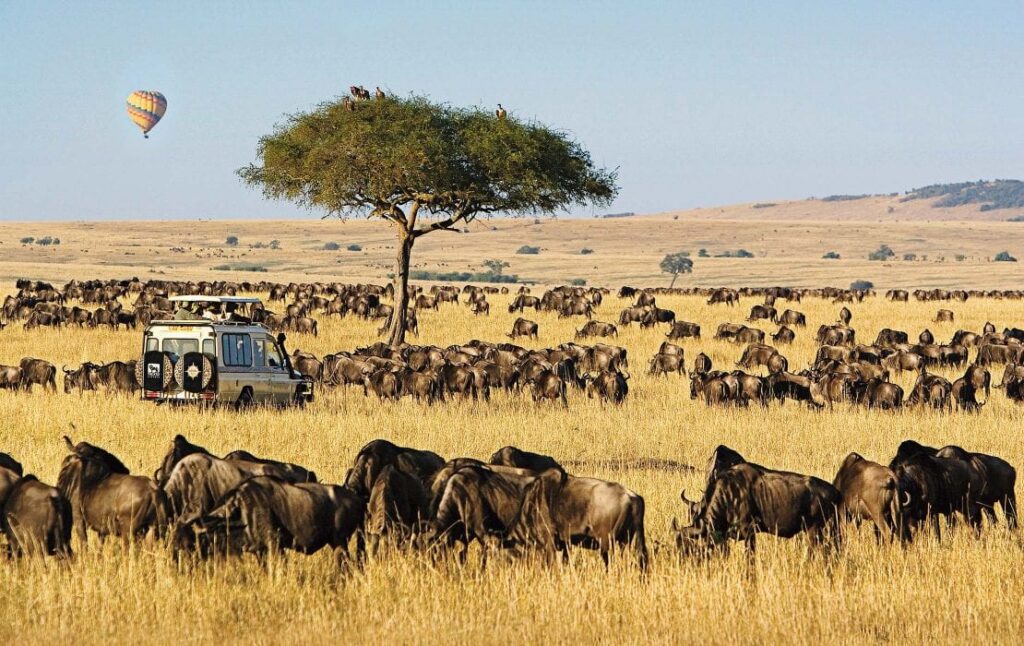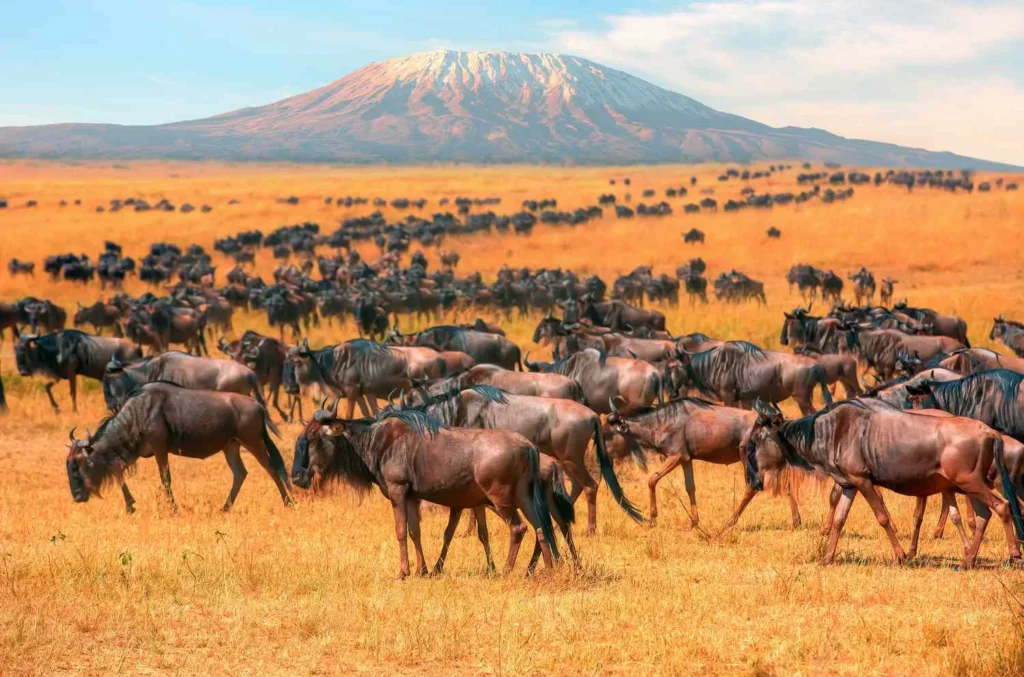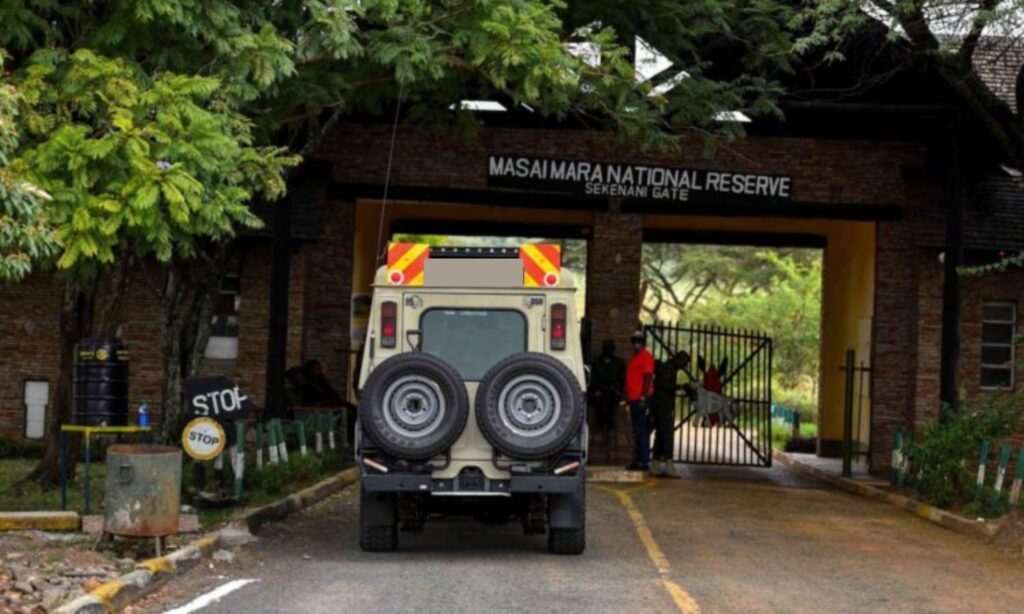
Introduction
Kenya is globally known for its incredible wildlife and natural beauty, making it a favorite destination for tourists. Among its most famous attractions, the maasai mara national reserve stands out as Kenya’s number one tourist destination. From the breathtaking Great Migration to encounters with the Big Five and cultural interactions with the Maasai people, the Maasai Mara offers an unforgettable safari experience. But what makes the Maasai Mara the top destination for travelers to Kenya?
The Great Migration: A World-Class Spectacle
The Great Migration is one of the main reasons the Maasai Mara is considered Kenya’s top travel destination. Every year, over 1.5 million wildebeests, zebras, and gazelles migrate from Tanzania’s Serengeti National Park to the Maasai Mara, crossing the crocodile-infested Mara River. This migration, which usually occurs between July and October, offers visitors a once-in-a-lifetime chance to witness one of the greatest natural events on Earth. The migration also attracts predators like lions, leopards, and cheetahs, creating dramatic scenes of survival and making it one of the best times to visit the Maasai Mara.

The Big Five and Abundant Wildlife
Apart from the migration, the Maasai Mara is home to the Big Five—lions, elephants, leopards, buffaloes, and rhinos—which make it a must-visit destination for wildlife lovers. Visitors to the park can also spot giraffes, cheetahs, hippos, crocodiles, and more than 450 species of birds. With its vast grasslands and diverse wildlife, the Maasai Mara guarantees an exceptional African safari experience all year round.
Cultural Immersion: The Maasai People
No trip to the Maasai Mara is complete without a visit to the local Maasai villages. The Maasai are one of Kenya’s most well-known tribes, famous for their rich culture, traditional dances, and distinctive clothing. Tourists can take part in cultural tours that allow them to interact with the Maasai people, learn about their unique traditions, and buy handmade Maasai crafts. This cultural experience enriches the overall visit, making the Maasai Mara a destination that goes beyond wildlife.
Also Read
- Ruto and Kindiki Join Uhuru in Donating Millions to Support Betty Bayo’s Family
- Treasury Announces Plans to Borrow Ksh1.02 Trillion Before 2027 Elections
- CS Wandayi Addresses Plans to Vie for President Under ODM in 2027
- Married Man Struggles to Mourn Side Chic He Loved Without Wife Noticing
- Breaking: Woman Allegedly Attacked by Kibuye Market Chairlady Reportedly Loses Two Unborn Babies
Economic Impact of Maasai Mara Tourism
The economic importance of the Maasai Mara cannot be overstated. The park generates millions of dollars annually from tourism, which helps boost the local economy and supports thousands of jobs. Revenues from park fees, safari lodges, and eco-friendly camps directly benefit the Maasai community, enabling them to preserve their traditions and invest in education and healthcare. Tourism also plays a critical role in conservation efforts, funding anti-poaching initiatives and habitat preservation projects.

Sustainability and Conservation in the Maasai Mara
In recent years, sustainable tourism in the Maasai Mara has become a major focus to ensure that its rich biodiversity is preserved for future generations. Various conservation organizations work alongside the Maasai community to protect the park’s fragile ecosystem. Eco-lodges that use solar power, minimize waste, and actively participate in wildlife conservation are becoming the norm, helping to reduce the environmental footprint of visitors.
Conclusion
The Maasai Mara’s unrivaled wildlife, cultural richness, and ongoing conservation efforts make it Kenya’s number one tourist destination. Whether you’re seeking adventure, breathtaking views, or a chance to connect with nature and local communities, the Maasai Mara offers it all. For anyone planning a Kenya Safari, this iconic reserve should be at the top of their list, as it remains a symbol of Kenya’s natural beauty and commitment to protecting its heritage.

